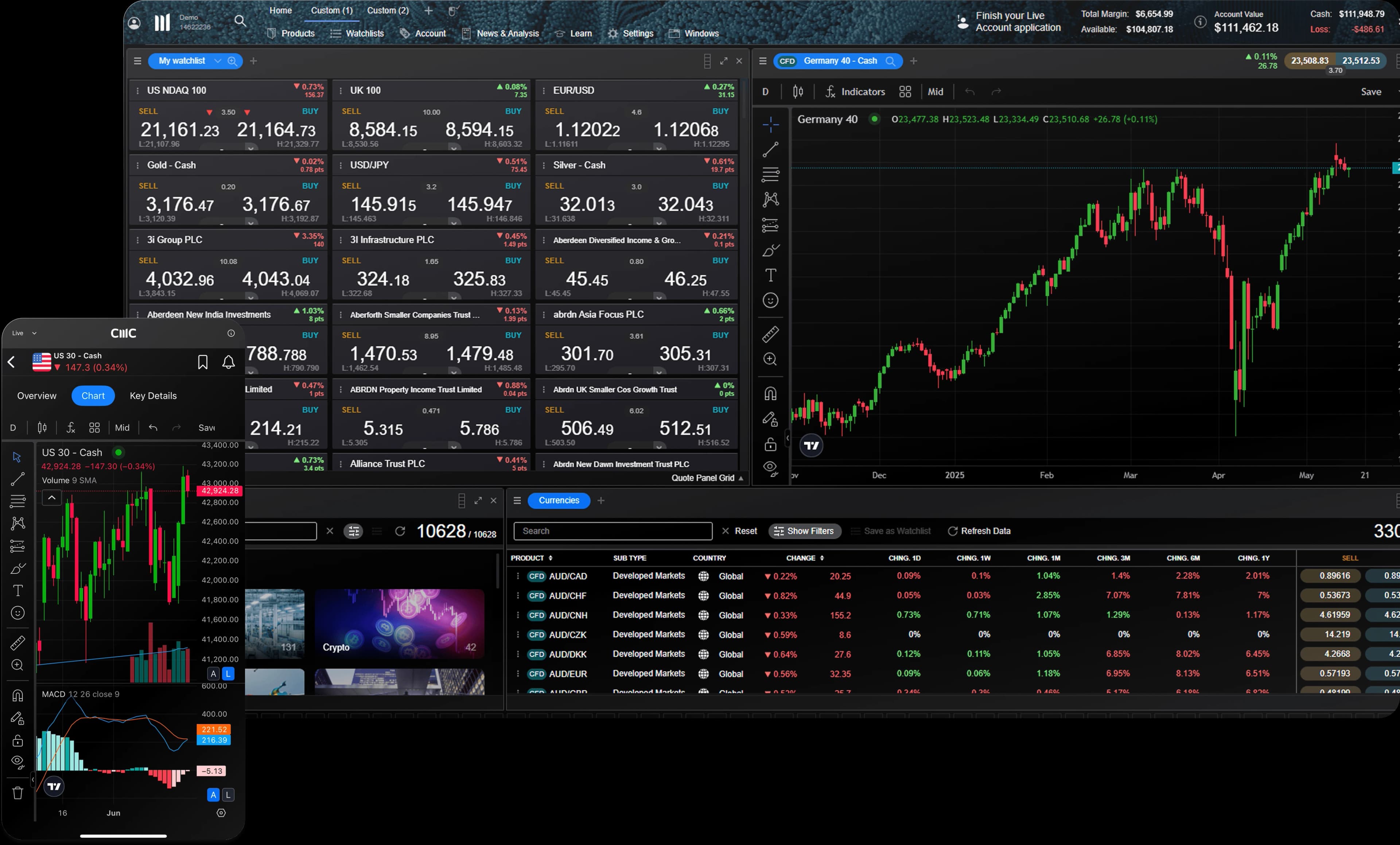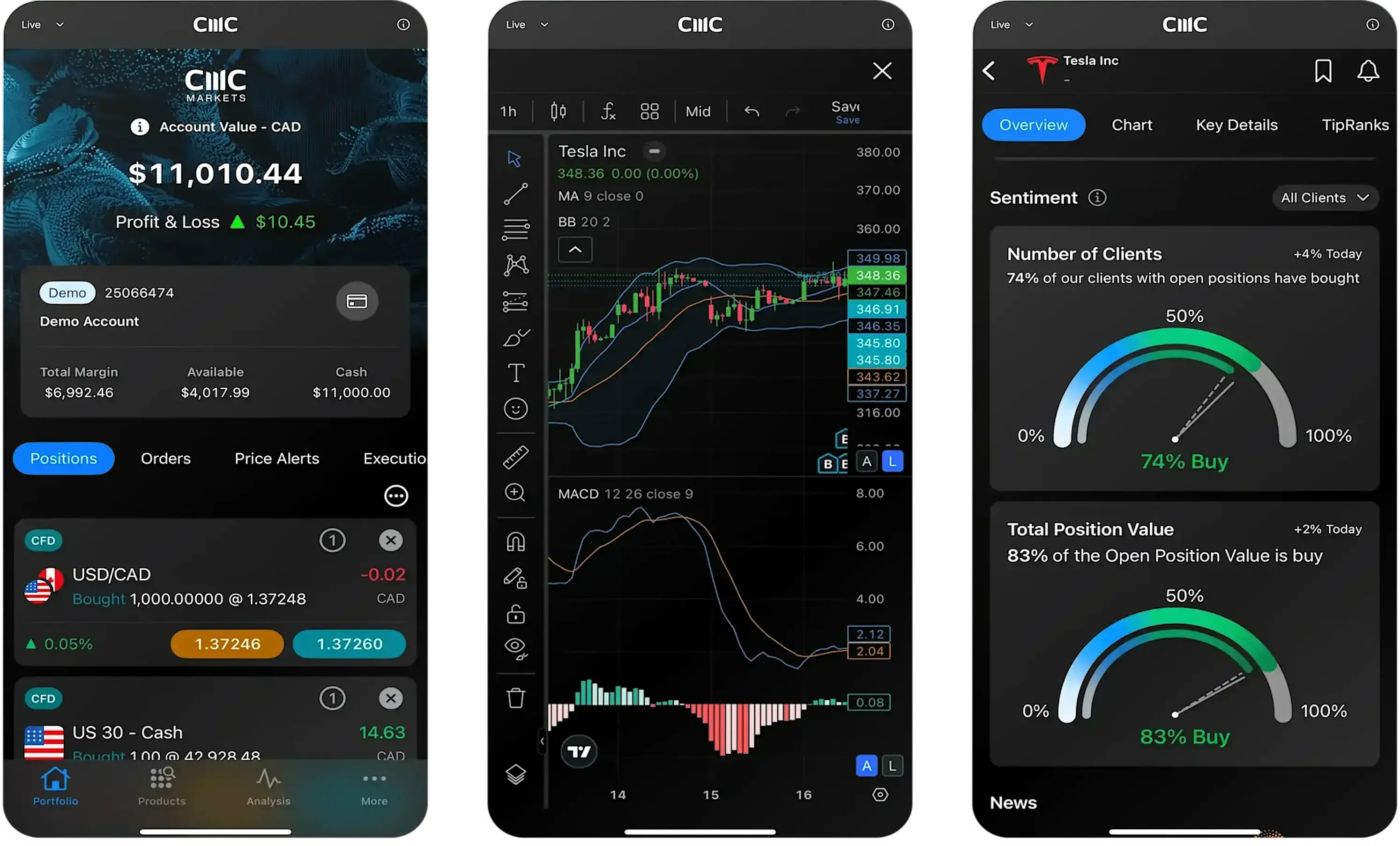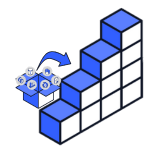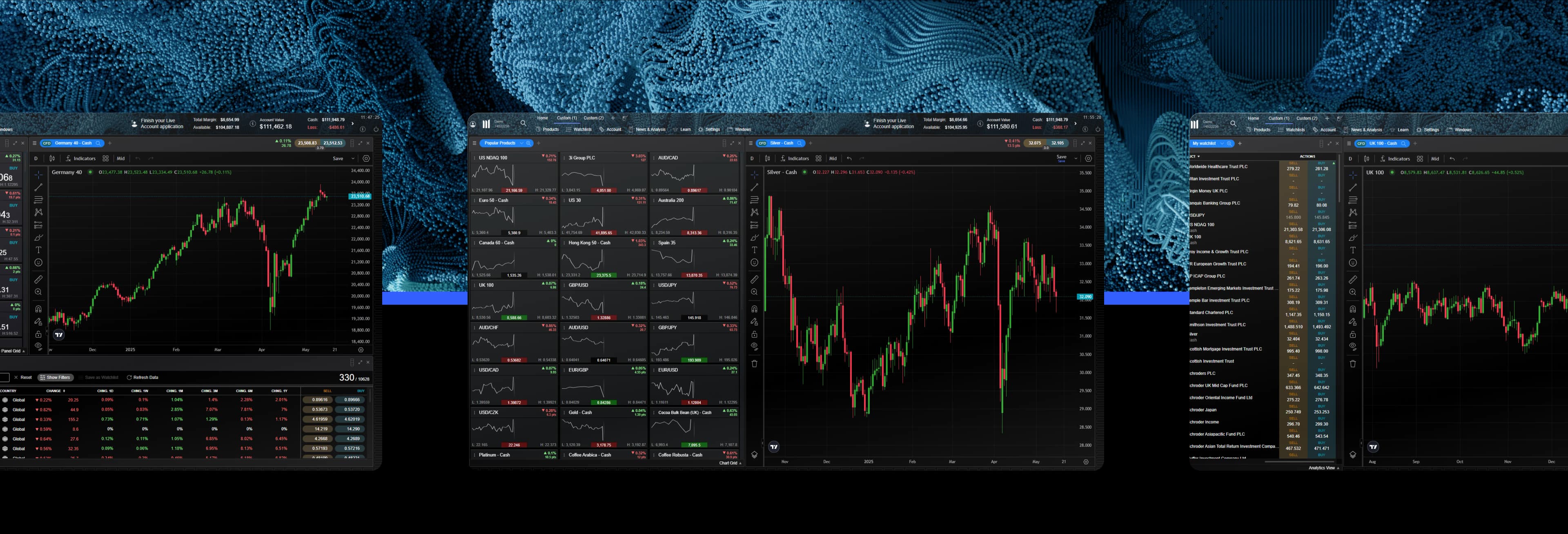What are ETFs?
Exchange-traded funds (ETFs) are a type of investment vehicle that track the performance of a broad collection of underlying assets, such as shares, commodities, and bonds.
ETF portfolios are held by corporations that issue shares (a portion of ownership) in the fund. These shares give investors exposure to the underlying assets as a collective.
Why trade ETFs with us?
Dive deeper
Do you have any questions?
Our client services team is here whenever the markets are open.
Email us at clientmanagement@cmcmarkets.ca or call us on 1-866-884-2608.
1Best Mobile Trading Platform, ADVFN International Financial Awards 2024; No.1 Web Platform, ForexBrokers.com Awards 2023; No.1 Most Currency Pairs, ForexBrokers.com Awards 2023; Best Charting (Germany), Investment Trends Leverage Trading Report 2023; Best Customer Service (Germany), Investment Trends Leverage Trading Report 2023; Best In-House Analysts, Professional Trader Awards 2023; No.1 Platform Technology (UK), ForexBrokers.com Awards 2022; Best CFD Provider (UK), Online Money Awards 2022; Industry Pioneer with "Outstanding" Customer Rating (Germany), Focus Money Test Edition 36/2022, "Very good" Trading Platform (Germany), Deutsches Kundeninstitut (DKI) Survey 2022.
2 0.009 seconds CFD median trade execution time on CMC Markets' web and mobile platforms, 1 April 2024-31 March 2025.
3Reuters news ticker is a registered trademark of Thomson Reuters®. Refinitiv® Morningstar is a registered trademark of Morningstar Inc.
4Based on over 2 million unique user logins across CMC's trading and investing platforms, including partners, as at November 2025.
